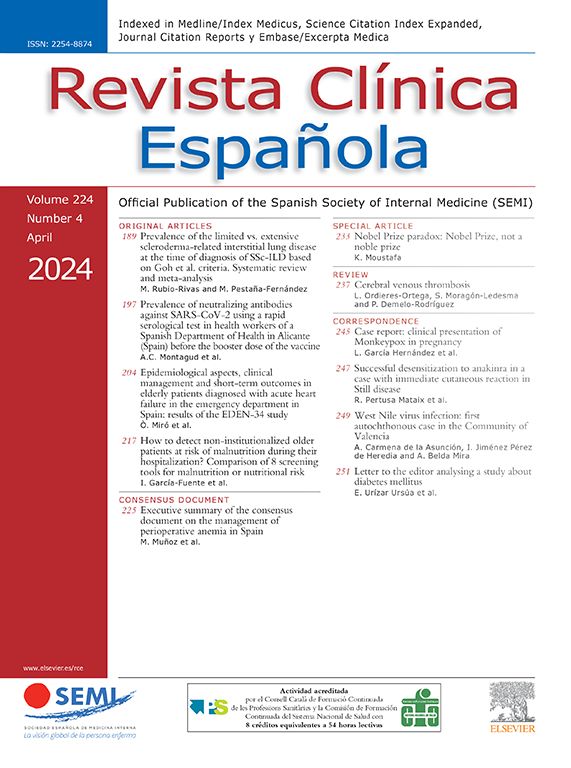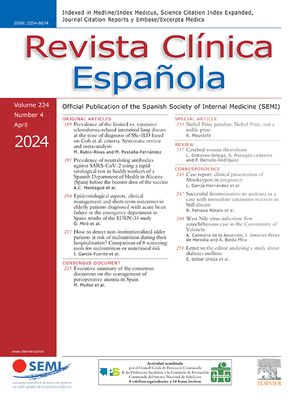The development of hospital clinical ethics in Spain depends almost exclusively on the healthcare ethics committees, which have been criticized for a lack of proximity to the patient's bedside in day-to-day ethical conflicts and for their scarce practical operation, reflected in the low number of consultations they receive.
In this study, we reflect on the need to change the current healthcare model in clinical ethics so as to reactivate it and call attention to the essential role of internists as the engine for this change. To this end, we propose a model in which the healthcare ethics committees incorporate ethics consultants, who are better positioned to discuss cases at the patient's bedside. We then analyze the characteristics that these consultants should have.
El desarrollo de la ética clínica hospitalaria en España depende casi exclusivamente de los comités de ética asistencial. Estos han sido criticados por su falta de cercanía a la cabecera del paciente en los conflictos éticos cotidianos y por su escasa operatividad práctica, que se refleja en el escaso número de consultas que reciben.
En el presente trabajo reflexionamos sobre la necesidad de modificar el modelo actual de atención en ética clínica para reactivarlo y llamar la atención sobre el papel primordial del internista como motor de dicho cambio. Para ello proponemos un modelo en que los comités de ética asistencial incorporen consultores de ética, mejor posicionados para la discusión de casos a la cabecera del enfermo. Seguidamente analizamos las características que dichos consultores deberían poseer.
Article
Diríjase desde aquí a la web de la >>>FESEMI<<< e inicie sesión mediante el formulario que se encuentra en la barra superior, pulsando sobre el candado.

Una vez autentificado, en la misma web de FESEMI, en el menú superior, elija la opción deseada.

>>>FESEMI<<<





